The cities have always been the spiritual reflection of time. In ancient times, the city’s center was configured to carry political, cultural ideologies and foundational democracy which are fundamental aspects defining the society. In modern times, our culture, civilization, and built environment are facing another challenge on a global scale which is climate change and the degradation of nature. Hence, beyond creating solely a space for commercial, communal activities, restoring the urban ecology system in the city’s center is a defining feature that promotes nature-centric urbanization, and harmonious cohabitation between humans, nature, and other species. The relocation of the bus station presents an opportunity to reclaim the city’s center as a living and dynamic system that favors and stimulates socio-cultural networks of all kinds. As a philosopher, Clément Rosset said ”anti-nature is nature anti, a way of defining a thing by its natural opposite: the city posited as the opposite of nature. The city, hence, would be anti-artificial; it must then recover and once again find life, nature, animals, greenery, purity, calmness”. San Dona is a middle-sized city defined by a mono-centric structure: the core city is dominated by a transport hub which is surrounded by a semi-ring peri-urban system including the residential and industrial fabric. On its edges is the ring of peri-urban agricultural areas. At the urban scale, the project aims to investigate an alternative way of configuring the city by integrating the agroecological system into the existing urban fabric. By reversing the conventional structure and introducing again to the city’s center the notion of productivity and living features through an acupuncture network of small-scale agricultural gardens, and micro forests. Furthermore, the urban agroecological
application is critical to limit cities’ impact on climate change, mitigates and reduces ecological degradation, increases the resilience and productivity of the city center. The station would be the starting point of the whole urban renewal process and the nexus of historical, cultural, educational, creative, and natural concentration.
French landscape architect, Gilles Clément argued that all of the underused parcels of land where man does not use, hosting rich biodiversity compared to the monocultural fields, are sprayed with phytosanitary products. We thus look at waste/ underused land. By identifying them and turning them into potential productive spaces. An acupuncture network of pocket gardens and the micro-urban forest will be formed and interwoven into the existing urban fabric. In order to cope with the given architectural programs and urban conditions, the landscape will acquire various programs that support the growth of the neighborhood and form different functional clusters. The pocket garden network envisions a city that produces its own necessities. It also supports recreational, educational activities, and functions as a social condenser encouraging dynamic exchanges, social interaction, and coexistence through common unexpected events.
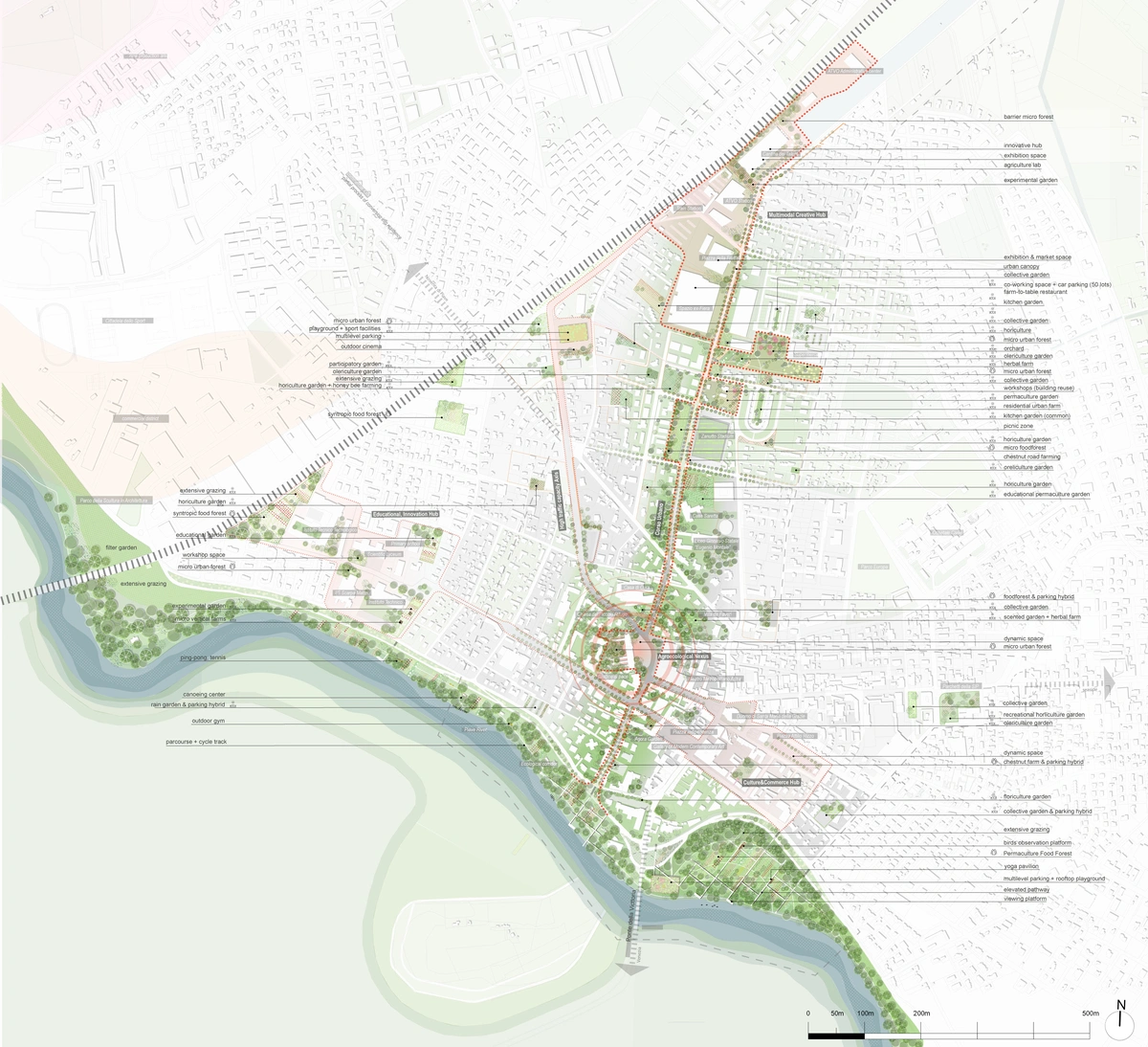
Masterplan introducing nature and productivity back to the city center
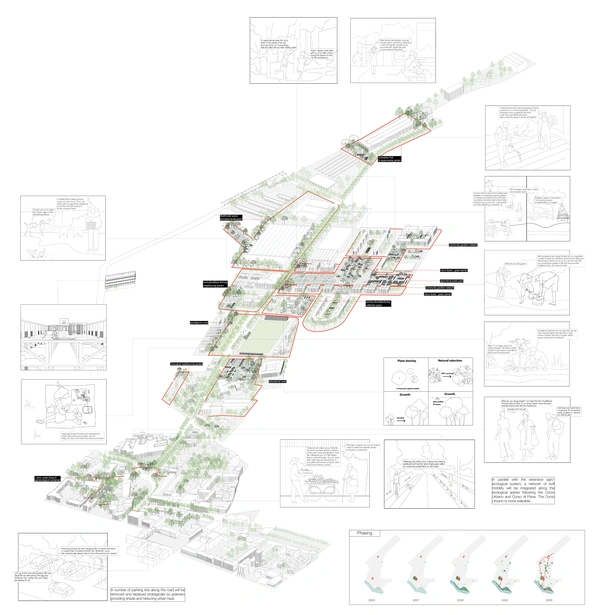
Network of pocket gardens and micro forest as the additional programmatic layer upon the underused terrains ( the third landscape )
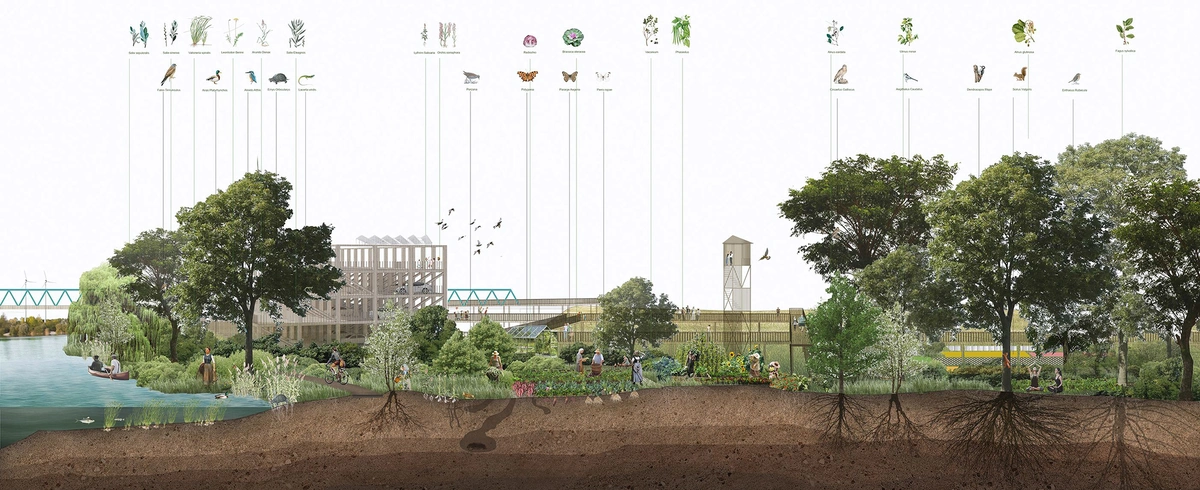
cross section through the riverside's agricultural park
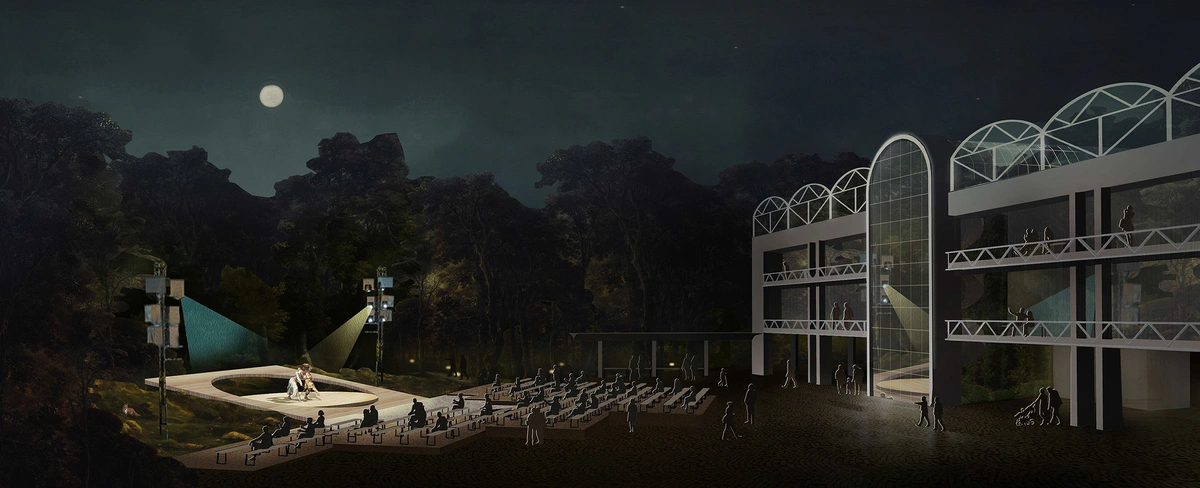
Open air theater as the social condenser
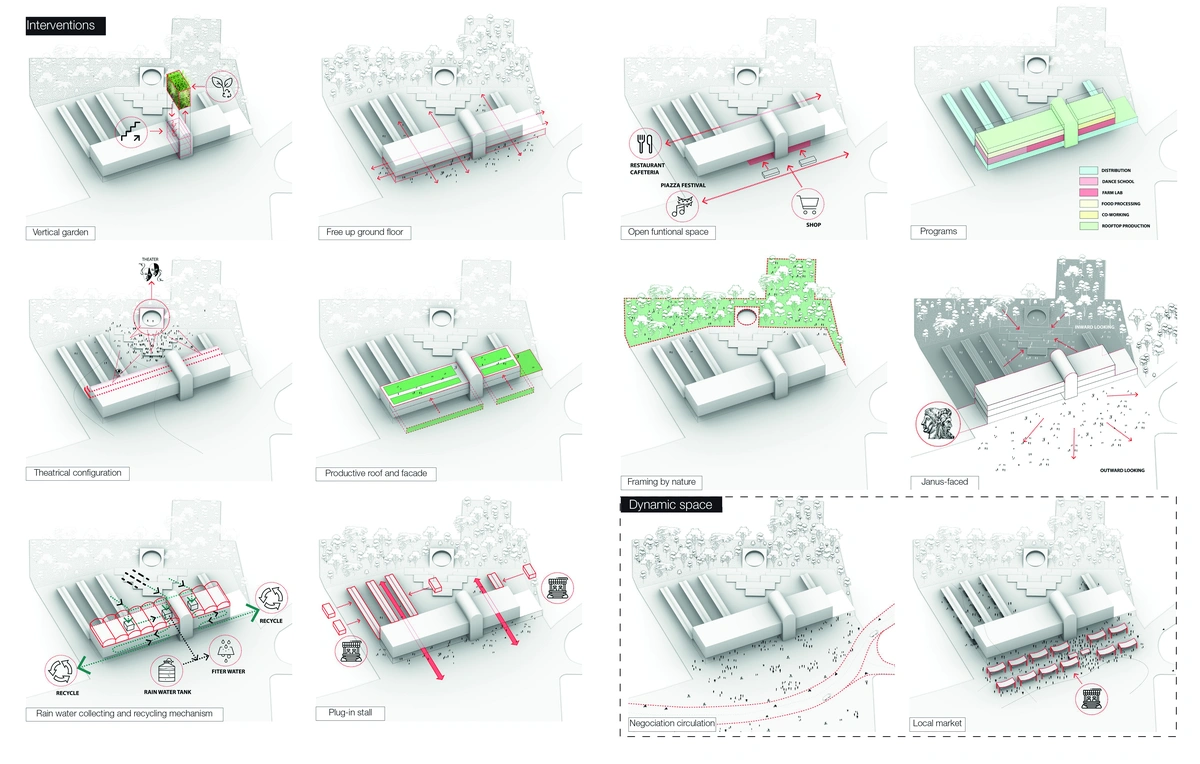
transforming strategies of the bus station
Paris based architect, founder of Mai Hung Trung / atelier M32 and Hanoi Ad Hoc https://www.hanoiadhoc.com/ . Graduated with honour from ENSA Paris Malaquais, France and Leibniz Universitat Hannover, Germany, Trung has always been fascinated by the urban chaos and banalities that he considered as indispensable catalysts intriguing fundamental urban changes. His works focus on devising urban renewal strategies for post-industrial contexts and defining modern vernacular architecture and urban patterns. His investigation fields range from rural villages in Vietnam to European shrinking cities and hinterlands.
Trung is the recipient and nominee of numerous international awards and competitions including Europan 16 / Living Cities ( Laureat ), Europan 15, World Architectural Festival 2018, ASA International Competition 2015.